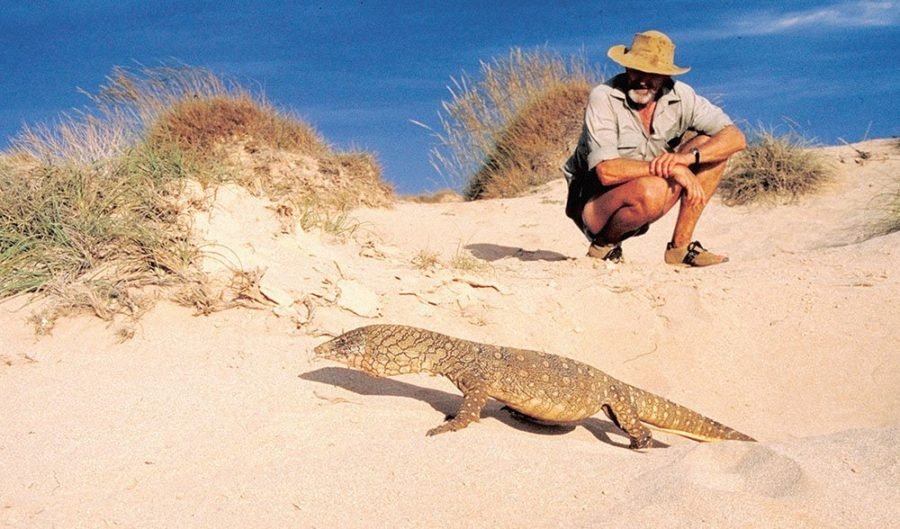Vale Harry Butler AO CBE

NATURALIST AND CONSERVATIONIST Harry Butler was Australia’s first celebrity wildlife hero, using television to champion the nation’s unique animal life and natural environments long before anyone else.
His profile grew initially through a television program called In the Wild with Harry Butler. During four series produced for the ABC between 1976 and 1981 he traipsed across the countryside – film crew in toe – bringing the wonders of Aussie nature to a primetime audience. Clad in a crumpled hat and khakis, his thin weathered face fringed by a scruffy beard, he presented as the quintessential Aussie bloke with a broad understanding and appreciation for the country’s wild places and an ability to explain conservation and ecological concepts to ordinary people.
Born in Perth in 1930, Harry first worked as a teacher before launching in the 1960s into a career as one of Australia’s first environmental consultants. At that time, as a young conservationist, he embarked on one role that he would have for five decades; as an environmental adviser on the sustainable exploitation of first oil and later gas on Barrow Island off the WA coast.
Harry was the 1979 Australian of the Year, an honour he shared with Neville Bonner, the first Aboriginal person to become a member of the Australian Parliament.
Conservation controversy
In 2012, Harry was added to the National Trust of Australia’s list of National Living Treasures. And in the same year he was named an Officer of the Order of Australia for “distinguished service to the community through the promotion of public understanding of natural history and wildlife conservation”. But it was also for service to “the development of collaborative environmental partnerships with industry, and to the community” and it was this that ultimately set Harry apart from many of his conservation colleagues and compatriots.
He was a staunch believer that development and conservation could co-exist and once observed: “I’ve achieved more by working with mining companies and other developers than I ever would have lying down in front of bulldozers.” It was a stance for which Harry was sometimes harshly criticized, notably when he worked as a consultant on the failed Franklin Dam Project and for his support of mining in Kakadu.
Harry died in Perth on December 11, this year, after a two-year battle with cancer. He was aged 85.
Harry Butler was listed as one of 30 conservation heroes in the Jan-Feb 2016 (#130) issue of Australian Geographic.

